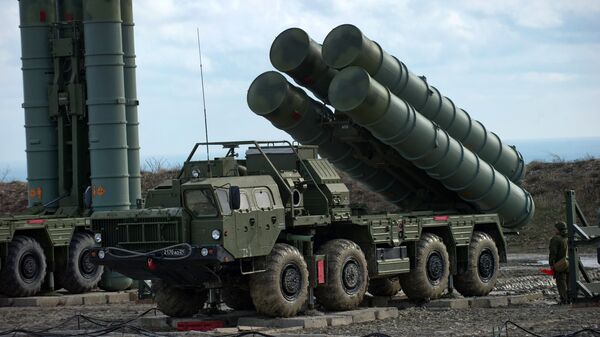The Hurriyet newspaper quoted Turkish Prime Minister Binali Yildirim as saying that Ankara wanted to get its air defense systems from NATO member countries, but that it "could not get the necessary support from the US."
"The fact that we have entered defense cooperation with Russia does not downplay the importance of our obligations as a NATO member. We do not intend to abandon NATO. We only need such cooperation with Russia in order to eliminate the looming threats to Turkey," Yildirim said.
He added that Turkey had no other choice because due to the lack of modern air defense systems, the Turkish Air Force failed to destroy 71 missiles earlier fired on Turkey from Syria. At least 29 people were killed in the strikes, according to Yildirim.
The Russia-Turkey talks on the delivery of the S-400 systems kicked off last year. On September 12, 2017, Moscow and Ankara announced that a deal had been signed.
READ MORE: S-400 vs Patriot: Comparison of the Missile Defense Systems of Russia and US
Shortly after, Turkish President Recep Tayyip Erdogan said that Ankara had made its first payment for the air defense systems, with Moscow confirming receipt of the advance payment in late September.
READ MORE: Pentagon Told Turkey About Concerns Over S-400 Purchase From Russia
The S-400 Triumf (NATO reporting name: SA-21 Growler) is Russia's next-generation mobile surface-to-air missile system equipped with three different types of missiles capable of destroying aerial targets at a short-to-extremely-long range.




